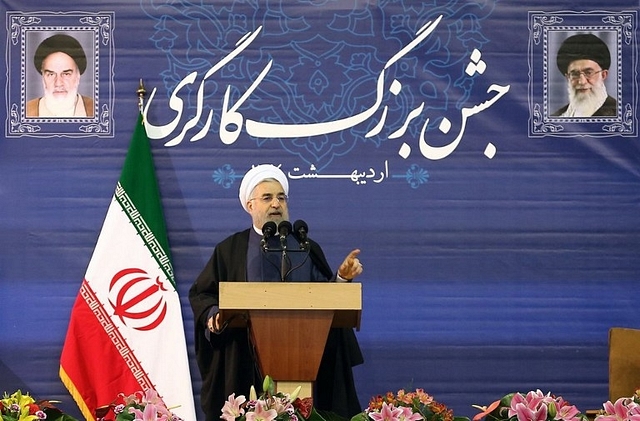
Iran And Goodwill
Can Tehran provide peace to the Middle-East by counteracting Wahhabism and the Islamic State?
The Iran sanctions have gone. Will it bring peace to the Middle East? The two issues seem divergent. They are in fact related.
Iran was an international pariah after the split with the United States and the rise of Ayatollah Khomeini. Its nuclear ambitions worsened its miseries. The direct gainer was Saudi Arabia.
For more than 35 years, Wahhabism was on the ascendant because Saudi power grew in the absence of counteracting Shia Iran. The hand of Wahhabism in the 9/11 attacks did not mortally damage Saudi power, or indeed the expulsion of the Al-Qaeda from Afghanistan and the death of Osama Bin Laden in a US raid. The Al-Qaeda morphed to a deadlier form of Wahhabism called Islamic State which has Saudi backing.
This state of Sunni ascendancy was hardly uniform. Setbacks were frequent. The major one was the loss of Iraq to Shia rule. This was the unintended consequence of Saddam Hussein’s deposition. The loss of Iraq was offset by the rise of the Islamic State which declared a caliphate in the Sunni areas of Iraq and Syria. Yemen cut deeper in a sense. Overall, however, Wahhabism was growing dominant, and sanctions’ constrained Iran was a powerful factor. This will now change.
The change is already seen. As if Saudi Arabia feared an Iran unconstrained by sanctions, it executed a Shia cleric, provoking a breakdown in diplomatic relations. Their proxy wars in the Middle East will escalate. In earlier times, Saudi Arabia could have counted on Western support. If Iran plays its cards well, this may no longer be the case.
What does this entail? Iran must build on the goodwill generated by voluntary abdication of military nuclear ambitions. This must, for one, continue indefinitely to have effect. It will give Iran the image of a responsible regional power compared to Saudi Arabia. Saudi Arabia is not helping its cause.
Its deputy crown prince has been outed as a trouble-maker. The German intelligence service has targeted him for most of the troubles in the Middle East. The execution of the Shia leader seems his idea. He has played right into Iran’s hands. Iran couldn’t have scripted it better.
Iran is hugely benefited by a moderate President. Moderation is the key to Iran’s rise. It was moderate not to embrace a military nuclear regime. It must lead by example as a moderate Islamic power. It would provide the sharpest contrast to Saudi Wahhabism.
The world needs rest from Wahhabism and the Islamic State. It needs an Islam of moderation, accommodation and peace. Iran can provide that. It could do so to such a degree that Sunni kingdoms are compelled by their subjects to become moderate and democratic. It could catalyze profound changes in the region.
This won’t be easy. The hardline Islamic clergy would be loath to ease controls and permit state moderation. There may be fear and revulsion in sections of the population, especially among the older generation, about a “regression” to pre-revolutionary times. Those risks and oppositions have to be borne without altering Iran’s moderate course. It would bring peace to the region.
The West has a role, but scarcely of the strategic, interventionist type, except in the neutralization of the Islamic State threat. The West should encourage Iran’s moderation in a distant, invisible way. It has already done so tangentially with the nuclear deal. Other sets of issues have to be discovered, banded, and dealt with to strengthen the moderate forces in Iran. It needs careful handling and extraordinary diplomacy.
Israel is key to success. It has taken a hard line to Iran’s absolution. The fault lies on both sides. Iran has to step back from supporting anti-Israeli forces in Lebanon and the Palestinian territories. This may or not immediately transform Israeli attitude to the Palestinian question. But Israel would deport more normally towards Iran. It would be a change worth having.
On the whole, the nuclear deal and the removal of sanctions augurs well for the Middle East, provided Iran builds on the goodwill generated. Iran’s religious and political establishment must work together to that end. It would blunt Saudi provocations and assist the world to contain Wahhabism.
This article was originally published here.